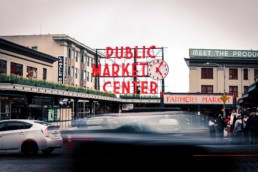TFN 2018 Annual Conference updates! Keynote speakers, mobile workshops and more
By Tere Figueras Negrete, Director of Communications
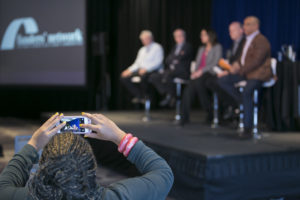 TFN's 2018 Annual Conference is fast approaching. Join us in Houston March 19-21 as we welcome national, regional and local funders looking to increase the impact of their grantmaking and create more equitable, sustainable and prosperous communities.
TFN's 2018 Annual Conference is fast approaching. Join us in Houston March 19-21 as we welcome national, regional and local funders looking to increase the impact of their grantmaking and create more equitable, sustainable and prosperous communities.
From insightful speakers and in-depth panels to our popular mobile workshops and networking receptions, there are plenty of of opportunities to connect, share and explore.
Register today for TFN's 2018 Annual Conference, March 19-21 at the Hotel ZaZa in Houston’s thriving Museum District. Download our Schedule At-a-Glance to help you plan your visit. Here are just a just a few of our TFN 2018 Annual Conference highlights:
Resilient People, Resilient Places: Spotlight on SolutionsPre-Conference Institute | Monday, March 19 | 9 to 11:30 a.m. |
After Harvey: A Slam Operetta
Since 1983, Writers in the Schools (WITS) has worked hand-in-hand with educators and professional writers to teach students the craft of writing. In the days after Hurricane Harvey, Writers in the Schools’ teachers worked with children at a local shelter to help them express their anxiety through writing. Rukmini, who immigrated to the United States from India when she was 6, was chosen from dozens of applicants competing for the honor of being named the city’s Youth Poet Laureate. |
Mobile Workshops
You'll have a chance to gain insight about flood resilience on a Bayou Greenways bike tour; learn about fence-line communities along the Houston Ship Channel; explore art and equitable development on a Third Ward walking tour; take a trip up Houston's METRORail Red Line; or visit the community of Gulfton, a first stop for many immigrants and refugees, often referred to as Houston's version of Ellis Island. |
Mustafa Santiago Ali, Hip Hop Caucus
He joined the EPA as a student and became a founding member of the EPA’s Office of Environmental Justice (OEJ). He served multiple roles in his 24 years at the agency, including as senior advisor for Environmental Justice and Community Revitalization. Ali also led the Interagency Working Group on Environmental Justice (EJIWG), which was comprised of 17 federal agencies and White House offices focused on implementing holistic strategies to address the issues facing vulnerable communities. |
Lessons from the Kresge Foundation and the California Endowment on impact investing
Last week, TFN's Smart Growth California hosted a video conference for funders to learn about the challenges and opportunities for impact investing in low-income communities and other communities in which it is typically harder to deploy capital. A recent blog post summarized the highlights of the webinar.
The webinar featured insights from:
- Jalonne White-Newsome, The Kresge Foundation (and a 2017 TFN PLACES Fellow)
- Judi Larsen and Amy Chung, The California Endowment
- Cat Howard, Northern California Community Loan Fund
- Moderator Katherine Pease, Director of Impact Investing, Cornerstone Capital Group
Impact Investing: A Giving Tool for Foundations That’s Gaining Traction
For a few years now, impact investing has been a buzz topic amongst funders. Because traditional forms of capital seldom reach the most high-needs communities in our regions, philanthropic capital investments can serve as an intermediary to boost the ability of individuals, businesses, and communities to succeed in the traditional marketplace.
A growing number of foundations are working toward aligning their programmatic and traditional grant-making goals with a variety of investment tools to enhance opportunities for low-income communities. The Global Impact Investing Network’s annual survey reported that in 2016, $114 billion of impact-capital was deployed by the 209 asset owners surveyed. This is likely a fraction of those who are beginning to utilize impact investing as a giving tool.
Many foundations that serve low-income communities of color are leading the way in developing a model to encourage broad-based, place-based impact investing across all asset classes. The California Endowment and The Kresge Foundation are two of the major foundations that have taken the leap to explore new tools for creating change in their target communities.
Read the full blog post to learn more about how Kresge and the California Endowment used impact investing to great effect, key takeaways from both foundations and find resources on impact investing.
To our funders, with thanks and gratitude
Dear funders,
 While we feel this way all year at TFN, in the spirit of Thanksgiving I want to take a moment to express gratitude for our network of funders and partners dedicated to unraveling society’s most difficult problems, be it environmental injustice, irresponsible growth or inequitable policies, and whose work may often feel thankless. Now more than ever, we see that philanthropy can be relied upon to bring together the right people, ideas and resources to find solutions to those problems.
While we feel this way all year at TFN, in the spirit of Thanksgiving I want to take a moment to express gratitude for our network of funders and partners dedicated to unraveling society’s most difficult problems, be it environmental injustice, irresponsible growth or inequitable policies, and whose work may often feel thankless. Now more than ever, we see that philanthropy can be relied upon to bring together the right people, ideas and resources to find solutions to those problems.
I’m also exceedingly grateful to the TFN team — our community of staff, contractors, and board of directors — who work so diligently to ensure that our network continues to thrive and grow.
Especially in a year where it seems every news cycle brings a story of unimaginable loss or a startling reminder of the deep-seated divisions we face as a country, it is heartening to be surrounded by people who are dedicated to supporting the important work of building communities that are more equitable, sustainable and resilient. Not just for some but for all.
We thank you for the work you do today — and every day.
Partners for Places: "Can technology create inclusive cities?"
At the heart of any sustainability effort is hope for the future: That the right combination of people, resources and ideas will result in communities that are healthier, safer and stronger for generations to come.
So what role does technology have in these communities of the future?
Rob Phocas, energy and sustainability manager for the City of Charlotte, N.C., explores this topic in a recent contribution to CIO Review's "Smart City" special edition. Charlotte was one of seven cities to receive a matching grant through the Partners for Places Equity Pilot Initiative earlier this year. The equity pilot initiative supports cities and their place-based foundation partners to develop local approaches for prioritizing equity in sustainability and/or climate action. (This two-year pilot program is supported by the generosity of The Kendeda Fund and The Kresge Foundation.)"
"I like the latest 'smart' technology as much as the next person. Be it a smart streetlight, a digital kiosk, or a solar powered bench that charges your smart device and counts passers-by, it is hard not to find futuristic features appealing. But as a sustainability director and public servant, I must look past that cool factor," writes Phocas. "At a recent smart cities conference at the University of North Carolina at Chapel Hill, the conference organizers asked the presenters to answer a question during their remarks: 'Can innovative smart city technology create coherent and inclusive cities?'”
His answer:
"What started as an industry-lead effort focused on promoting the latest gadgets to municipalities is shifting to a municipal-lead effort to understand which of these gadgets can help staff achieve their mayor and/or city council’s goals of creating a great quality of life for their residents. Charlotte’s approach is no different, which is why my answer to the question about technology creating coherent and inclusive cities was, 'No.' It is people, after understanding the unique needs of their residents, who will use these innovative smart technologies to create coherent and inclusive cities, not technology alone."
Read Phocas' take on smart city technologies, and learn more about how Charlotte is working to plan for its future by focusing on meaningful community engagement, in the the full story.
In speaking out against federal cuts, Legacy Foundation provides a sample guide for advocacy action
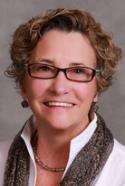
This summer, we featured a Fair Share blog post highlighting how the Legacy Foundation is leaning into advocacy — and how the foundation’s leadership helped organize stakeholders in the greater Northwest Indiana region to speak out against proposed federal budget cuts at HUD and EPA that would have severe negative impacts on the region’s low- and moderate-income population and environmental protections.
Legacy Foundation President Carolyn Saxton shared this update on the process with TFN:
“We finally got our meeting with the Congressional leaders together last Friday…not an easy process and we were not able to secure participation by Sen. Young. But we had Rep. Visclosky and Sen. Donnelly in attendance.
I am attaching some of the items from that meeting, including the agenda. Ahead of the meeting we provided our Congressmen with the participants who are signatories on the impact statement. The impact statement is attached. At the meeting we distributed the materials that informed our impact statement; those are also attached. We discussed next steps and at this point the newspapers are holding off on any coverage about these budget concerns primarily because they believe they will be dead in the water when they arrive from the President. I am not so sure but we are ready if that is not the case. Our Congressmen in attendance voiced their support for continued funding and commented that these meetings and personal correspondence are very important."
Carolyn also shared examples of an impact statement and other documents Legacy compiled to share with elected officials, which may be of interest to other funders considering similar approaches:
Impact Statement and Support Documents
Letter Opposing Changes to the Johnson Amendment
Carolyn writes:
“Taken together, the documents mentioned above offer a sample guide to advocacy action on any number of policy issues.”
For more information you can contact Carolyn directly at csaxton@legacyfdn.org.
Fair Share is an occasional column devoted to sharing innovative projects and promising practices from the OIC network. If you have ideas for a topic, or a story to share, contact Alicia at alicia@www.fundersnetwork.org.
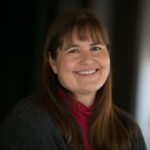 Alicia Kitsuse
Alicia Kitsuse
Program Director for Older Industrial Cities
alicia@www.fundersnetwork.org, (305) 667-6350
Partners for Places: How Toledo developed a sustainability plan with—not for—a historic neighborhood
|
When the Toledo-Lucas Sustainability Commission wanted to bring its newly adopted “Going Beyond Green” (GBG) sustainability plan to life, the Toledo Community Foundation (TCF) knew just the place for a pilot. TCF connected the sustainability commission to the Old West End Neighborhood Initiative (OWENI), a group of resident leaders representing the Old West End, a neighborhood once home to the most well-to-do residents of Toledo whose collection of 19th century Victorian and Edwardian homes would eventually earn parts of the area a spot on the National Register of Historic Places. But the construction in the 1960s of an interstate highway, as well as considerable disinvestment and economic hardship, took a steep toll on the working-class and predominantly African American residents of the Old West End.
The Going Beyond Green sustainability plan was completed in 2014 at a moment of heightened energy around redevelopment of a former manufacturing site adjacent to the Old West End. OWENI emerged to help bring the neighborhood’s voice to the table and position residents to benefit from the redevelopment as it unfolds. The project was awarded a grant through the Partners for Places matching grant program, a successful matching grant program that creates opportunities for cities and counties in the United States and Canada to improve communities by building partnerships between local government sustainability offices and place-based foundations. Through these projects, Partners for Places fosters long-term relationships that make urban areas more prosperous, livable, and vibrant. The grant program was launched in 2012 by The Funders’ Network for Smart Growth and Livable Communities and the Urban Sustainability Directors Network (USDN). Toledo was awarded a $25,000 Partners for Places grant, which was matched by an additional $25,000 from the Toledo Community Foundation for a total of $50,000 that enabled OWENI, in close partnership with the Toledo Arts Commission to engage with the Sustainability Commission and other partners. For example, AmeriCorps provided staffing support.) |
The Arts Commission’s focus on placemaking aligned directly with OWENI’s vision to enhance the “sense of place” in the Old West End neighborhood. Their ability to convene diverse partners wove a sustainability orientation into fields such as community design, landscape architecture, arts and culture, health and wellness, and transportation. They also facilitated exploration, with the community, of approaches to implementing sustainability in the neighborhood. Christine Billau Dziad, a program officer with the Toledo Community Foundation said that engagement provided key insights. “This project enabled us to engage residents, rather than just helicopter in with skills and tools,” she said. These mutually beneficial relationships have led to authentic implementation partnerships, as well as an understanding of how to activate sustainability with partners in other communities, notes Melissa Greene Hopfer of the Toledo-Lucas Sustainability Commission. “One of the most valuable things we got from this project was the experience of what it means to develop a plan with and not for a neighborhood,” said Greene Hopfer. Alongside collaborative learning, the project provided a platform for requisite action, which resulted in a range of projects – walkable and bikeable streets, reuse plan charettes, a pollinator plan on a high traffic corner – with complementary placemaking, neighborhood beautification, nature habitat, and employment outcomes. These projects were critical to the success of the project, said Billau Dziad. “From the residents’ perspective, projects can often feel like all talk and no action,” she said. “The GBG project helped us to have an act.” About the author:
Since 1990, Danyelle O’Hara has worked with a range of organizations in the United States and internationally to help build capacity in issues related to community economic development, natural resources management, and community change. In West and Central Africa, Danyelle worked with Catholic Relief Services and the World Wildlife Fund and in the U.S., she has worked as staff to the Center for Community Self-Help and The Conservation Fund, and with numerous organizations as a consultant. Danyelle has a Bachelor’s degree in anthropology and a Master’s in international development education, both from Stanford University, and extensive experience in program development and design, program management, and evaluation.
About Partners for Places: A collaborative matching grant program, Partners for Places creates opportunities for cities and counties in the United States and Canada to improve communities by building partnerships between local government sustainability offices and place-based foundations. Partners for Places is led by TFN and our partners at the Urban Sustainability Directors Network. National funders invest in local projects to promote a healthy environment, a strong economy, and well-being of all residents. Through these projects, Partners for Places fosters long-term relationships that make our urban areas more prosperous, livable, and vibrant. To date, Partners for Places has awarded more than $5 million across North America in this successful matching grant program, leading to more than $10 million in investments.
|
Diversity is nature’s greatest strength—it should be ours, too.
“Strength in Diversity,” proclaimed the Bugler, the newsletter I picked up at Olympic National Park in Washington State. I’d taken advantage of the opportunity to explore the Pacific Northwest before our 16 fellows arrived in Seattle and Tacoma for our second PLACES gathering, and it was as if the work had started a week early.
The stunning density of the Hoh Rain Forest revealed its layers to me as yellow-green light shone through the gigantic Sitka spruce trees, Douglas firs, big leaf maples, western hemlock, and ubiquitous mosses and ferns. Tiny saplings, striving toward the light, stretched their roots around recently fallen nurse logs down to the soil for water and stability. All these beings compete fiercely for resources, but also depend on one another to cope with and adapt to changes in the environment. “The park’s variety of life,” cried the Bugler, “provides strength and resilience for the future.”
Sounds familiar?
In Seattle, in Tacoma, and in my home, the Quad Cities, we need to cope with change and adapt for the future. We know that the American cities that are growing and thriving have diversity in common. But diversity without equity and inclusion will serve none of us.
The National Equity Atlas calls our country’s increasingly diverse population “a tremendous asset in the global economy. But rising income inequality and persistent racial gaps in health, wealth, income, employment, education, and opportunity prevent low-income people and people of color from realizing their full economic potential. And as the nation becomes more diverse, the costs of inequity will grow.”
The Quad Cities urban core is actually made of five cities in northwest Illinois and Southeastern Iowa: Davenport and Bettendorf in Iowa; Rock Island, Moline and East Moline in Illinois. With growing diversity and an average racial income gap of $5 per hour in our metro area, along with disparities in educational levels needed for current and future jobs, the Quad Cities has much to do to realize our regional vision that “residents of all races, ethnicities, ages, political affiliations, religious backgrounds, sexual orientations and viewpoints […] are embraced, have an equal opportunity for success and know that their differences are the foundation for the region’s successes.”
I’m proud that our government, nonprofit, and business leaders have adopted this goal of being a welcoming and inclusive community.
As another small city setting its own image rather than letting itself be defined by others, Tacoma offers relevant lessons for my home. They too are seeing increased diversity without corresponding equity. One cooperative response comes from the Puyallup Watershed Initiative, a mix of community members, nonprofits, governments, and businesses in that watershed to increase community stewardship, strengthen local leadership, increase equity and inclusion—all in the interest of improving water quality for the people who rely on the glacial runoff of that eerie floating mountain visible all along the I-5 corridor: Mount Rainier. Each work group, coalesced around common interests like transportation, food, stormwater, and environmental education, creates a unified 20-year vision as well as shorter-term plans to accomplish goals within that time.
 The people of Seattle, too, offer lessons on the power of diverse coalitions. The Chinatown-International District —made up of Chinatown, Japantown, and Little Saigon— remains diverse despite economic pressures because of intensely careful development (and despite the forced removal and confinement of Japanese residents in the 1940s.) Today, many players are working to works to improve the neighborhood while maintaining its historical character, affordability, and diversity. They include two not-for-profit organizations that own many of the local buildings, an elected design review board with unusually strong powers, and community organizers with strong ties to the community—like Sonny Nyugen, who led us on an eye-opening tour of the Chinatown-International District.
The people of Seattle, too, offer lessons on the power of diverse coalitions. The Chinatown-International District —made up of Chinatown, Japantown, and Little Saigon— remains diverse despite economic pressures because of intensely careful development (and despite the forced removal and confinement of Japanese residents in the 1940s.) Today, many players are working to works to improve the neighborhood while maintaining its historical character, affordability, and diversity. They include two not-for-profit organizations that own many of the local buildings, an elected design review board with unusually strong powers, and community organizers with strong ties to the community—like Sonny Nyugen, who led us on an eye-opening tour of the Chinatown-International District.
Success is not guaranteed. The Center District up the hill on Jackson Street was once a thriving hub of African American homes and businesses, but fell from 80 percent black residents in the 1960s and 1970s to 11 percent today due to market pressures and racially motivated zoning. The Chinatown-International District has managed, if not escaped, gentrification—so far.
In our philanthropic roles, PLACES fellows took to heart this lesson on the strength of diverse allies. Bina Patel, our PLACES coach, says, “This is going to take a huge group of people that are not you. You’ve got to find them.” We each recognize the need to bring in unexpected partners to accomplish our varied goals while increasing equity. When I looked for allies at home, I didn’t initially look to business leaders: It’s not in every city that they come forward to stress the importance of a welcoming and inclusive community, as they have in the Quad Cities. One of our PLACES fellows articulated her realization that in advocating against an expanded border wall, southwestern hunters and environmental activists would have common cause with immigrant rights groups. And another elicited knowing laughter from all of us by encapsulating it with the words of Puff Daddy (Diddy): “Tell your friends to get with my friends, and we can be friends.” We need more friends with the same values, but different ideas.
I know what I said earlier: that there in Olympic National Park, it seemed the work of PLACES started a week early. But truly I know our work—The Work—of striving for racial equity doesn’t begin and doesn’t end. It’s a constant process, walking (or crawling) one step after another towards a world where people’s outcomes are not defined by their race. The lessons gained during my time with our PLACES coach, staff, and fellows teach me to recognize opportunities to learn and ask questions outside of our meetings. When I can spot a lesson on equity even while communing with nature, I know PLACES is equipping me to map those steps, walk those steps, and most importantly, to connect with others who want to walk with me.
Catch up on our last Going PLACES blog here.
About the Author:
Kelly Thompson, Vice President of Grantmaking and Community Initiatives, Community Foundation of the Great River Bend
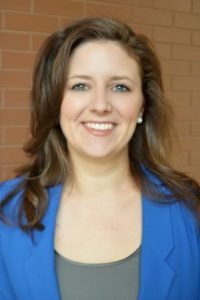 Kelly earned her Masters in Social Work from the University of Iowa and her Bachelors degree in Sociology from Augustana College. She brought to the Community Foundation nine years of experience in social services, including direct service in the areas of child welfare and homelessness; grant writing; and agency administration. As Vice President of Grantmaking and Community Initiatives, Kelly oversees grantmaking, scholarships, and the Community Foundation's collaborations with others on issues that no one organization can address alone. She also manages CFGRB’s youth philanthropy program, Teens for Tomorrow. Kelly lives in Rock Island, enjoys the local live music scene, and is active in community theatre.
Kelly earned her Masters in Social Work from the University of Iowa and her Bachelors degree in Sociology from Augustana College. She brought to the Community Foundation nine years of experience in social services, including direct service in the areas of child welfare and homelessness; grant writing; and agency administration. As Vice President of Grantmaking and Community Initiatives, Kelly oversees grantmaking, scholarships, and the Community Foundation's collaborations with others on issues that no one organization can address alone. She also manages CFGRB’s youth philanthropy program, Teens for Tomorrow. Kelly lives in Rock Island, enjoys the local live music scene, and is active in community theatre.
Speaking out against hate: Our response to Charlottesville, and what our funders are saying

At the Funders’ Network, we have long adhered to the fundamental values that guide us as an organization: A belief that philanthropy is uniquely positioned to help create communities that are more sustainable, economically prosperous and equitable.
As a non-partisan organization that encourages robust discussion and respect of various points of view, we recognize that there is a place for nuanced debate on the tactics and strategies needed to turn these ideals into actions and outcomes.
But hatred is not a point of view. And there should not—and can never— be any moral equivocation when it comes to denouncing the vile, toxic and dangerous philosophies.
Although the fatal demonstration that shook the nation took place in Charlottesville, no one is immune from the realities of racism and bigotry these hate groups embody—or the strong range of emotions the images of the event provoke: fear, frustration, disbelief, disgust, anger. It would be understandable to feel overwhelmed in the aftermath of such a show of hatred.
But, in the face of an increasingly emboldened element of our society that has taken to public declarations of white supremacy and neo-Nazism, we are heartened by the strong denunciations from many sectors since Charlottesville, including many leading voices in philanthropy. (See a compilation of our members’ responses below).
We are committed to helping our funders in their work to strengthen communities, and engage in practices that are not only effective but equitable.
Equity in grantmaking is the cornerstone of our PLACES fellowship, whose ranks have grown to nearly 100 alumni spread throughout the world of philanthropy. Our PLACES Fellowship gives professionals in philanthropy the tools, knowledge, and best practices needed to embed an equity lens into their work. The deadline to apply for the 2018 PLACES cohort is Oct. 31.
Below are responses to Charlottesville from many of our Funders’ Network members, as well as other resources you may find useful.
James E. Canales, President & Trustee, Barr Foundation
“We at the Barr Foundation add our unequivocal voice to the growing chorus that explicitly renounces the violent expressions of hate and the vile racism and bigotry that we witnessed in Charlottesville last weekend. Of course, such sentiments are not isolated to Virginia, and with a President who increasingly empowers these fringe actors, we will see more of it...”
Bob Ross, President & CEO, The California Endowment
“It is fundamentally clear we have witnessed emboldened levels of hateful, bigoted, racist, anti-immigrant, anti-LGBT, Islamophobic, white supremacist and white nationalistic behavior. And this behavior is not coming from all sides.”
Judy Belk, President & CEO, The California Wellness Foundation
“What we’ve learned is this: The struggle is real, but there are dedicated people working every day to stop violence in our communities and to counter the racism and hate that fuels it.”
Patrick McCarthy, President & CEO, The Annie E. Casey Foundation
"The violence and tragedy of Charlottesville, and the ensuing controversy and debates over the president’s response, are prompting public and private conversations about race, ethnicity and our history. Our children are listening and watching. What do we want them to take away? What do we want them to learn?"
Grant Oliphant, President, Heinz Endowments
“Call this beast what you will—whatever the politicians may say, it is not difficult to name. It is ethnic and racial hatred and bigotry. It is domestic terrorism, white supremacy, violent extremism. It is the damage in the human heart that looks for scapegoats and finds grim solace in the diminishment of others, holding them down, punishing them for wanting to share in the basic dignities we ourselves hold dear.”
Rip Rapson, President & CEO, The Kresge Foundation
"There is no moral ambiguity about the intentionally provocative, hatefully motivated, racist, and violent behavior ignited by white supremacists last week in Charlottesville. These acts of domestic terrorism not only denigrate, but threaten to undermine, the values that men and women have been fighting for since the signing of the Declaration of Independence and that define us as a people."
Meghan Binger Brown, Board Chair, and Kate Wolford, President, The McKnight Foundation
“In condemning these events, let us not forget the many routine, nearly invisible forms of prejudice our nation must overcome. Even as brazen displays of hatred rightfully appall us, subtle, everyday acts of racism and bigotry need to be rendered just as unacceptable. This is our shared responsibility.”
Sharon Alpert, President & CEO, Nathan Cummings Foundation
“The events in Charlottesville strengthen our resolve to stand in solidarity with those working to build a more just, vibrant, sustainable and democratic future, and to counter darkness with light, and hate with love.”
Fred Blackwell, CEO, The San Francisco Foundation
“The challenges in front of us are about race, but they are also about economics and the need for greater inclusion and equity. There are no simple answers. There are no simple solutions. But all of us can take on the task of speaking up and denouncing acts of hatred.”
Other News and Resources:
• The Communications Network offered a helpful list of what non-profits can do in the aftermath of Charlottesville, which include enrolling in equity-based training, stating your values publicly (as an individual and as an organization) and participating in public gatherings and vigils. ComNet also recommends reviewing “Having an Uncomfortable Conversation,” written by Anusha Alikhan, director of communications at Knight Foundation, another TFN member.
“This call to action is a reminder that our work is never finished,” she writes. “Inclusion is a daily practice that will continue as we strive to remove barriers, close gaps and ensure that equal opportunity is available to all.”
• As The Chronicle of Philanthropy pointed out in a recent story, the “white-nationalist rally in Charlottesville, Va., provoked a strong response from many nonprofits and foundations, and it wasn’t just organizations like the NAACP and the United States Holocaust Memorial Museum. A wide variety of nonprofits quickly joined the fray with statements of outrage, hope, and healing.”
• Deconstructing the images and slogans on display in Charlottesville: Symbols on display ranged from exact replicas of the Confederate flag to altered versions of a National Hockey League team logo. As well-coordinated and meticulously organized white nationalists converged to rally in Charlottesville, they brought with them chants, banners, slurs, shields and flags. Counterprotesters, including anti-fascist groups and local residents, church groups and civil rights leaders, had their own symbols and slogans. Each of the icons spotted carried its own political context and history, according to this guide in the Washington Post.
- A CBS news station in Houston, which will be the site of TFN’s 2018 annual conference, hosted a town hall on race relations in response to Charlottesville.
Has your organization issued a response to Charlottesville? Please send any updates to tere@www.fundersnetwork.org to be added to our compilation.

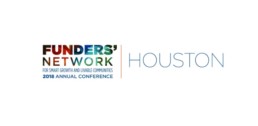
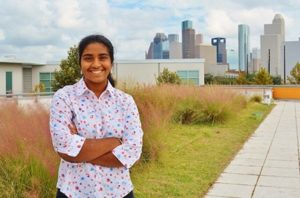
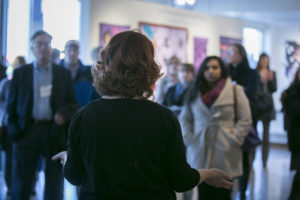
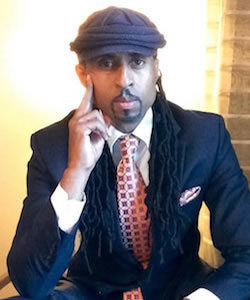

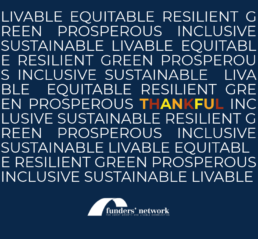
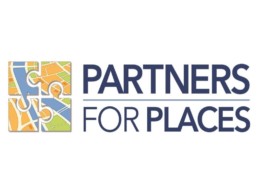
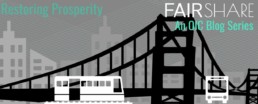
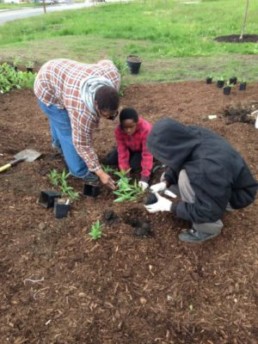
 OWENI’s commitment to revitalizing and improving the quality of life in the neighborhood, efforts that included a house-painting program for senior citizens and those with disabilities, made the Old West End an ideal laboratory for neighborhood-level, resident-led action.
OWENI’s commitment to revitalizing and improving the quality of life in the neighborhood, efforts that included a house-painting program for senior citizens and those with disabilities, made the Old West End an ideal laboratory for neighborhood-level, resident-led action.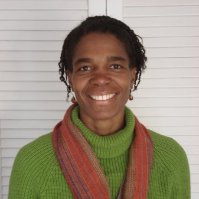 Danyelle O’Hara, Consultant for the Funders' Network
Danyelle O’Hara, Consultant for the Funders' Network